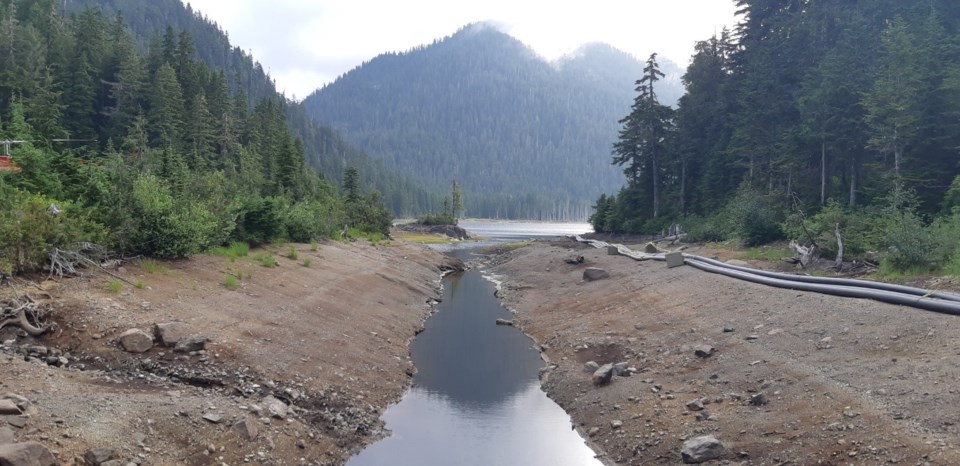As drought conditions continue for much of the Sunshine Coast, the regional district activated an Emergency Operations Centre (EOC) on Monday, Aug. 23.
While a state of emergency has not been declared due to the water crisis, the Sunshine Coast Regional District (SCRD) has begun a number of measures to respond.
Those steps include contacting high water users by site visit, letter or phone call to advise them to reduce consumption, and issuing shut-off notices to residents who received prior notice of leaks.
Staff will issue fines of $500 to residents found not complying with water restrictions, regardless of whether those residents have previously received a warning.
Staff are also discussing the potential of the Town of Gibsons supplementing the Chapman water system, an option mentioned at the previous week’s special board meeting.
“Activating our EOC ensures that we are ready should we need to call a state of emergency on the Sunshine Coast due to the drought situation,” chief administrative officer and EOC director Dean McKinley said in a press release.
“Our staff are working around the clock to do everything we can to keep water flowing through the Chapman Water System. Our EOC is in place to support these staff and plan ahead should we need emergency support from the province to secure water supply for residents, fire suppression and the Sechelt Hospital.”
SCRD staff believe, based on the past week’s water use data, that some residents on the Chapman water system are still watering outdoors – despite the Stage 4 restrictions banning such use.
More than 1,000 litres of water used per day is considered high, Remko Rosenboom, general manager of infrastructure services, told Coast Reporter. By comparison, in winter when residential users are not watering outside, the average daily water use is around 400 litres.
“If you’re using 1,200 litres, then there's something disproportionate because if you’re not using the water outside, where are you using the water?” Rosenboom said.
Some leaks are well over 10,000 litres a day, he added, tenfold what the SCRD considers high use.
In the press release Rosenboom said, “I am asking anyone who is not following Stage 4 Water Regulations to do so immediately. You have the potential to help all of us who live on the Sunshine Coast avoid an emergency situation.”
If a state of emergency is declared, the SCRD will prioritize water supply for residents, the Sechelt Hospital and fire suppression over all non-essential use. The SCRD plans to draw water from Edwards Lake using syphons, but would first need regulatory approvals. Water may be trucked into communities, and travel to the Sunshine Coast may be limited to essential travel only.
More information can be found at www.scrd.ca/sprinkling-regulations.
Reduce use
The SCRD is also now asking residents to conserve their water use indoors.
Following the outdoor water ban coming into effect for the Chapman water system on Aug. 10, the “Put a dent in your percent” challenge launched just nine days later, calling for a 10 per cent reduction of residential water use to help secure the water supply.
Conservation tips are being shared at letstalk.scrd.ca/save-water. Suggestions include showering less, flushing the toilet less – which can use up to 20 litres per flush – and washing only full loads of laundry or dirty dishes.
Leaks
In June, 189 leak notifications were sent out to residents. By the end of the month, 47 per cent were resolved. In July, 45 commercial users received leak notifications from the SCRD, Rosenboom reported at the special board meeting on Aug. 16.
Four residents in the Sechelt area were notified after leaks totalling 345,000 litres of water per day were found on their non-metered properties.
As of Aug. 23, 70 warnings and four fines had been issued.



